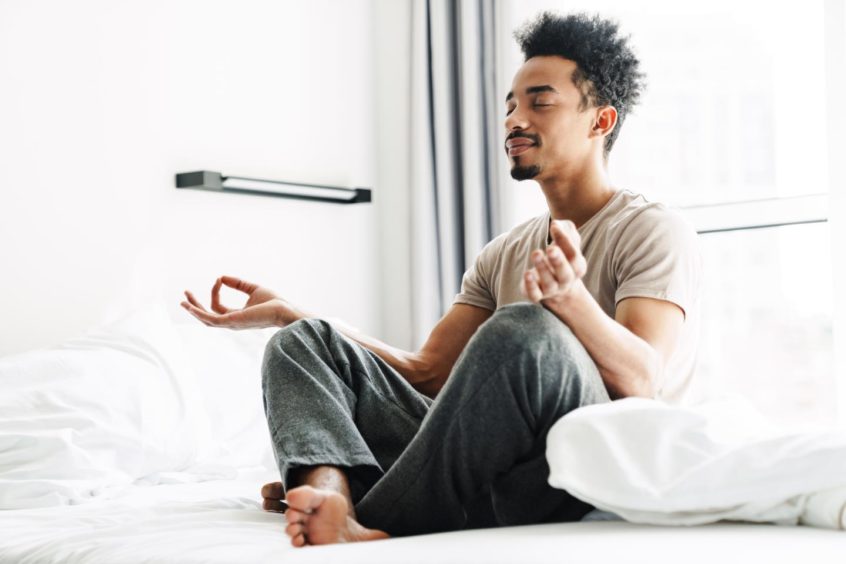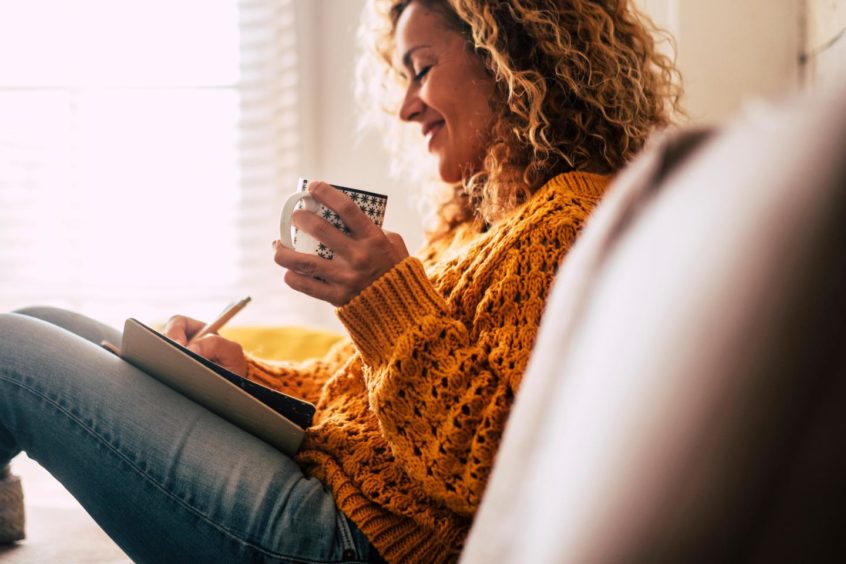Covid-19 turned our worlds upside down, but as we continue to emerge out the other side, a new mental health condition is being spotted in people around the world: Post Pandemic Stress Disorder.
Experts are beginning to fear the long-term impact stress symptoms influenced by Covid-19 will have on our health.
This triggered the non-medical official term Post Pandemic Stress Disorder (PPSD), which is used to describe the trauma caused by the coronavirus pandemic.
Mental health experts at Delamere have shared the best ways to cope if you’re experiencing PPSD.
Mindful meditation
Techniques used to relax the mind and body are the best coping strategy for stress, such as meditation, yoga, deep breathing and visualization.
When dealing with stress, you need to activate your body’s natural relaxation response, which helps to slow your heart rate, lower blood pressure and balance your mind and body.

Taking time to relax the mind with meditation gives you the space to separate your energy, attention and emotions.
Distinguishing the difference between valid emotions and those which are not, is a big part of mindful meditation, recognising this will help your experience with stress and anxiety.
Physical activity
Exercising regularly, even if that’s just 10 minutes a day can help individuals struggling with PPSD cope with their symptoms.
When exercising, breathing deeper triggers the body’s relaxation response. But there are certain exercises that can be more helpful than others when it comes to relieving stress.

Just like any other cardiovascular activity, walking outside for 20-30 minutes several times per week can improve sleep, increase energy and increase stress-busting endorphins.
When walking in green spaces, your brain is taken to a calmer state with little to no signs of anxiety.
Other forms of physical activity that can help with stress are gardening, pilates, yoga and tennis.
Expressive writing
Writing can help to boost positive emotions and reduce stress and anxiety.
Spending a total of 20 minutes per day writing about positive experiences can improve your physical and psychological health.

Start by thinking of an experience that makes you feel unhappy or uncomfortable and begin writing about the positives you can take from the experience.
Social support for stress relief
Reaching out to family and friends for help and support is crucial in coping with stress.
Limited social support has been linked to increased levels of depression, loneliness and has been proven to alter brain function and increase the risk of alcohol use, drug abuse, depression and suicide.

Social interactions with family and friends play a crucial role in how you function on a daily basis, spend time each day talking and interacting to relieve stress.
Improving nutrition
Certain foods are proven to help combat stress levels and improve emotional response.
Green leafy vegetables produce dopamine, a feel-good brain chemical that keeps you calm.

Yoghurt helps reduce brain activity, while salmon contains anti-inflammatory properties to counteract stress
Blueberries can boost a natural cell to help immunity and dark chocolate improves circulation.
Reaching out for support
Without support, PPSD can make life more difficult. Reaching out for support is the first step towards getting better.
Charities such as Mind, CALM and Breathing Space have online advice and help if you need it.
Or, you can contact the Samaritans by calling 116123, or emailing jo@samaritans.org.
Text ‘SHOUT’ to 85258 and someone from the Shout Crisis Text Line will respond – usually within five minutes.
For urgent support, you can call NHS24 for advice on 111.
